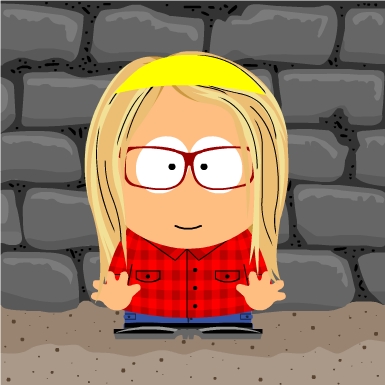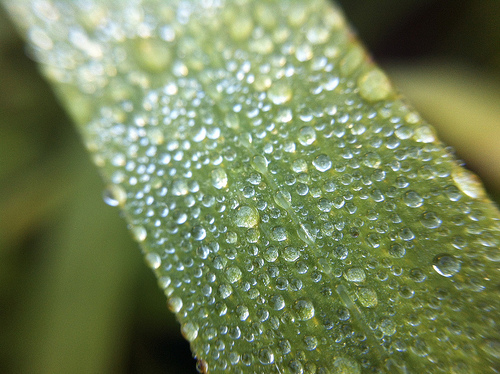Sophie Wender looked back from her horse at their small house that stood lonely on the jagged outskirts of the fringes, her six-toed feet dangling on the sides. She squinted hard at one of the windows, where David was surely watching. After one last wave that David probably didn’t see, the house disappeared behind the horizon; the monster that was swallowing up all she had ever known as her family’s small parade of horses and people moved forward.
“Will we see him again?” Sophie asked.
The voice pulled Mrs. Wender, Sophie’s mother, out of her thoughts. In the shapeless sea of her mind, she could somehow sense the apprehension Sophie was feeling. David had been such a good friend to her, it was such a shame that they had to leave so fast. He kept the secret of her toes without so much as a whisper to anyone. He was the one resident of Waknuk that didn’t see Sophie as dangerous or wrong, but for who she really was. Mrs. Wender seriously doubted that they would ever see David again, but somewhere in her mind, she could feel his wanting; his wanting to find them.
“Someday,” replied Mrs. Wender. “Someday.”
They continued on in their small parade for a few days with little hindrance, until Mrs. Wender started feeling the pains. They were dull pains that ran along her back and snaked around her body. These pains though, did not lack an air of apology and remorse.
“Something’s not right,” said Mrs. Wender, right as the search party appeared on the horizon.
* * *
They didn’t fight the search party, they didn’t even try to run. They simply stood there, waiting. The party led them and their horses to the edge of their district and into a small house. In that house, Sophie was poked and prodded, but all her parents could do was watch. Sophie kept a brave face, until the mention of the irons.
“The irons are ready,” said one of their captors. “Red hot and burning.”
At that, all the Wenders went white as a sheet. They had done all they could to keep Sophie safe, but not even that was enough. One of the older men held two misshapen hunks of metal in his hand.
“So those are the irons,” said the youngest member of the search party.
“Will we see him again?” Sophie asked.
The voice pulled Mrs. Wender, Sophie’s mother, out of her thoughts. In the shapeless sea of her mind, she could somehow sense the apprehension Sophie was feeling. David had been such a good friend to her, it was such a shame that they had to leave so fast. He kept the secret of her toes without so much as a whisper to anyone. He was the one resident of Waknuk that didn’t see Sophie as dangerous or wrong, but for who she really was. Mrs. Wender seriously doubted that they would ever see David again, but somewhere in her mind, she could feel his wanting; his wanting to find them.
“Someday,” replied Mrs. Wender. “Someday.”
They continued on in their small parade for a few days with little hindrance, until Mrs. Wender started feeling the pains. They were dull pains that ran along her back and snaked around her body. These pains though, did not lack an air of apology and remorse.
“Something’s not right,” said Mrs. Wender, right as the search party appeared on the horizon.
* * *
They didn’t fight the search party, they didn’t even try to run. They simply stood there, waiting. The party led them and their horses to the edge of their district and into a small house. In that house, Sophie was poked and prodded, but all her parents could do was watch. Sophie kept a brave face, until the mention of the irons.
“The irons are ready,” said one of their captors. “Red hot and burning.”
At that, all the Wenders went white as a sheet. They had done all they could to keep Sophie safe, but not even that was enough. One of the older men held two misshapen hunks of metal in his hand.
“So those are the irons,” said the youngest member of the search party.
“Watch closely young lad,” the man holding the irons replied with a cruel grin on his face, “and see what happens to blasphemies, along with those who conceal them.”
The man holding the irons then passed them off to one of the people detaining Mrs. and Mr. Wender. As the irons inched closer to Sophie’s trembling body, her parents saw their chance.
“On three,” Sophie’s parents said together.
It’s funny what one can notice in three seconds. Now, three seconds isn’t a large amount of time, but when one is about to die, they grasp on to those last seconds of beauty. The Wenders did.
“One,” whispered Mr. Wender.
A blue jay landed on the windowsill, it’s feathers the same shade as the sky.
“Two,” said Mrs. Wender in reply.
Sophies hair glistened copper in the determined fingers of sunlight, squeezing through the cracked panes.
“Three!” The Wenders yelled.
Hot metal hissed on skin then clanked to the floor. But somewhere, hidden in the noise that followed, small footsteps slapped the stone floor and a door creaked open.
The man holding the irons then passed them off to one of the people detaining Mrs. and Mr. Wender. As the irons inched closer to Sophie’s trembling body, her parents saw their chance.
“On three,” Sophie’s parents said together.
It’s funny what one can notice in three seconds. Now, three seconds isn’t a large amount of time, but when one is about to die, they grasp on to those last seconds of beauty. The Wenders did.
“One,” whispered Mr. Wender.
A blue jay landed on the windowsill, it’s feathers the same shade as the sky.
“Two,” said Mrs. Wender in reply.
Sophies hair glistened copper in the determined fingers of sunlight, squeezing through the cracked panes.
“Three!” The Wenders yelled.
Hot metal hissed on skin then clanked to the floor. But somewhere, hidden in the noise that followed, small footsteps slapped the stone floor and a door creaked open.


 RSS Feed
RSS Feed